#ruth goetz
Text
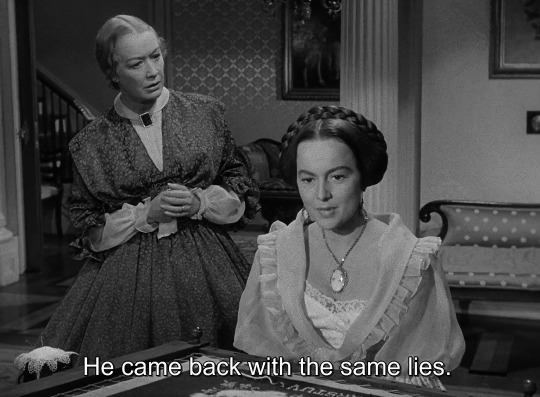
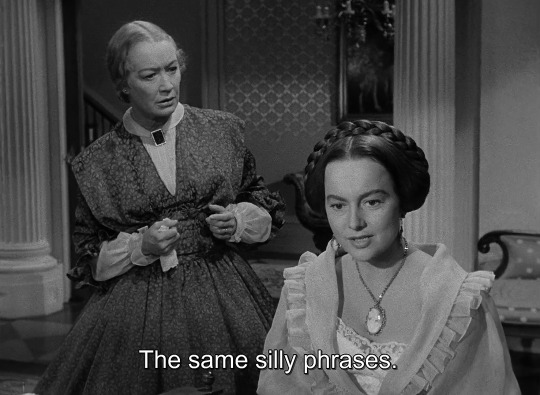


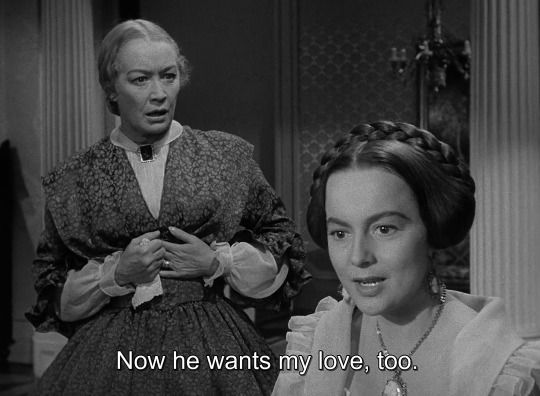

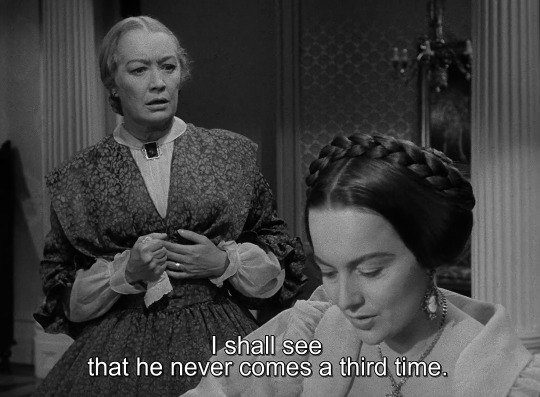

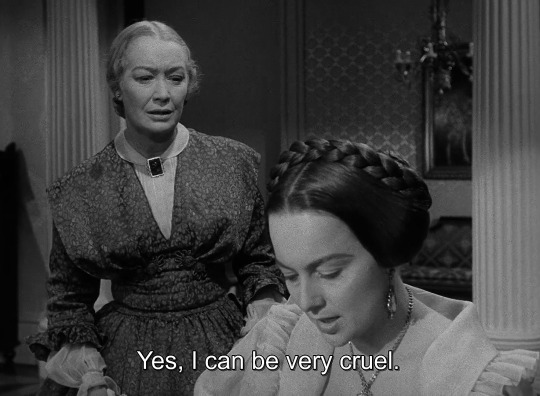
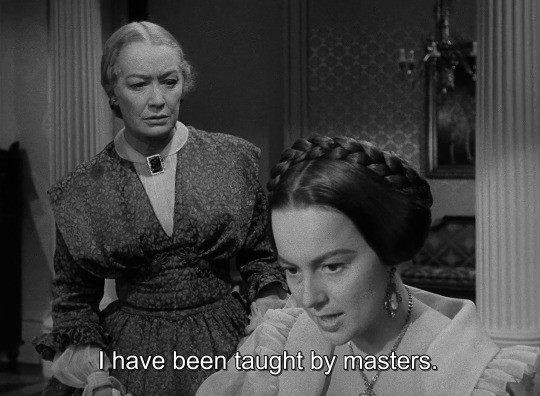
The Heiress (William Wyler, 1949).
176 notes
·
View notes
Text
Blu-ray review: “Carrie” (1952)
“Carrie” (1952)
Drama
Running Time: 106 minutes
Written by: Theodore Dreiser, Ruth Goetz and Augustus Goetz
Directed by: William Wyler
Featuring: Laurence Olivier, Jennifer Jones and Edward Albert
Julie Hurstwood: “Will you give her up?”
George Hurstwood: “I’m not like you, Julia. I don’t make threats, and I don’t make promises.”
Julie Hurstwood: “Well, I make them. And I keep…

View On WordPress
#Augustus Goetz#carrie#carrie 1952#carrie bluray#carrie bluray review#Edward Albert#Jennifer Jones#Laurence Olivier#Ruth Goetz#Theodore Dreiser#William wyler
0 notes
Text
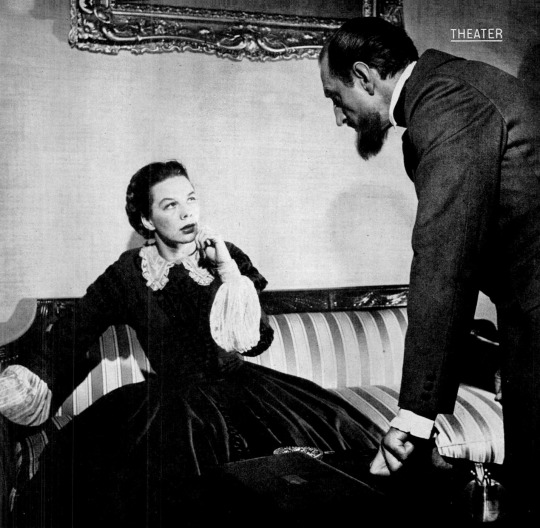

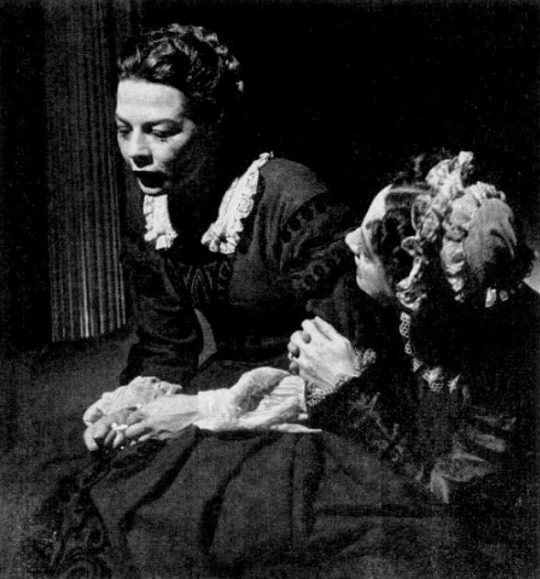

original broadway production of ruth and augustus goetz's the heiress, 1947
📸 by philippe halsman
#the heiress#wendy hiller#basil rathbone#patricia collinge#peter cookson#philippe halsman#*#can't stop thinking abt the heiress um 😭#theater
27 notes
·
View notes
Photo
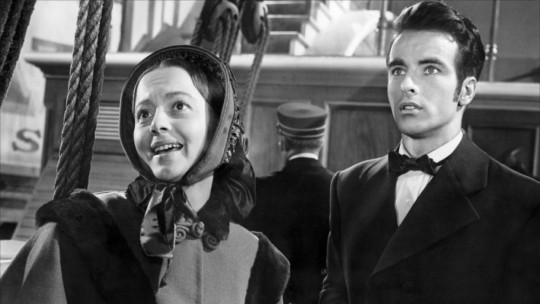
Olivia de Havilland and Montgomery Clift in The Heiress (William Wyler, 1949)
Cast: Olivia de Havilland, Montgomery Clift, Ralph Richardson, Miriam Hopkins, Vanessa Brown, Betty Linley, Ray Collins, Mona Freeman, Selena Royle, Paul Lees, Harry Antrim, Russ Conway, David Thursby. Screenplay: Ruth Goetz, Augustus Goetz, based on their play suggested by a novella by Henry James. Cinematography: Leo Tover. Production design: Harry Horner. Film editing: William Hornbeck. Music: Aaron Copland.
With 12 Oscar nominations and three wins for directing, William Wyler holds a firm place in the history of American movies. But not without some grumbling on the part of auteur critics like Andrew Sarris, who observed, "Wyler's career is a cipher as far as personal direction is concerned." His movies were invariably polished and professionally made, but if what you're looking for is some hint of personality behind the camera, the kind that Alfred Hitchcock or Howard Hawks or John Ford displayed no matter what the subject matter of the film, then Wyler is an enigma. His most personal film, The Best Years of Our Lives (1946), grew out of his wartime experiences, but they are subsumed in the stories he has to tell and not revealed with any assertively personal point of view on them. And anyone who can trace a Wylerian personality latent in movies as varied as Mrs. Miniver (1942), Roman Holiday (1953), Ben-Hur (1959), and Funny Girl (1968) has a subtler analytical mind than mine. What they have in common is that they are well made, the work of a fine craftsman if not an artist. The other thing they have in common is that they won Oscars for their stars: Greer Garson, Audrey Hepburn, Charlton Heston, and Barbra Streisand, respectively. The Heiress, too, won an Oscar for its star, Olivia de Havilland, suggesting that in Wyler we have a director whose virtue lay not in his personal vision but in his skill at packaging, at arranging a showcase not just for performers -- he also directed Oscar-winning performances by Bette Davis in Jezebel (1938) and by Fredric March and Harold Russell in The Best Years of Our Lives -- but also for production designers, costume designers, composers, and cinematographers: Oscars for The Heiress went to John Meehan, Harry Horner, and Emile Kuri for art direction and set decoration, to Edith Head and Gile Steele for costumes, and to Aaron Copland for the score, and Leo Tover was nominated for his cinematography. Wyler lost the directing Oscar to Joseph L. Mankiewicz for A Letter to Three Wives, but is there any doubt that The Heiress would have been a lesser film than it is without Wyler's guidance? All of this is a long-winded way to say that although I honor, and in many ways prefer, the personal vision that shines through in the works of directors like Hitchcock, Hawks, Ford, et al., there is room in my pantheon for the skilled if impersonal professional. As for The Heiress itself, it's a satisfying film with two great performances (de Havilland's Catherine and Ralph Richardson's Dr. Sloper), one hugely entertaining one (Miriam Hopkins's Lavinia Penniman), and one sad miscasting: Montgomery Clift's Morris Townsend. It's a hard role to put across: Morris has to be plausible enough to persuade not only Catherine but also the somewhat more worldly Lavinia that he is genuinely in love with Catherine and not just her money, but he also needs to give the audience a whiff of the cad. Clift's Morris is too callow, too grinningly eager. There is no ambiguity in the performance. If we like Morris too much, we risk seeing Dr. Sloper more as an over-stern paterfamilias and less as the cruelly self-absorbed man he is. Richardson's fine performance goes a long way to righting this imbalance, but he's fighting Clift's sex appeal all the way.
8 notes
·
View notes
Text


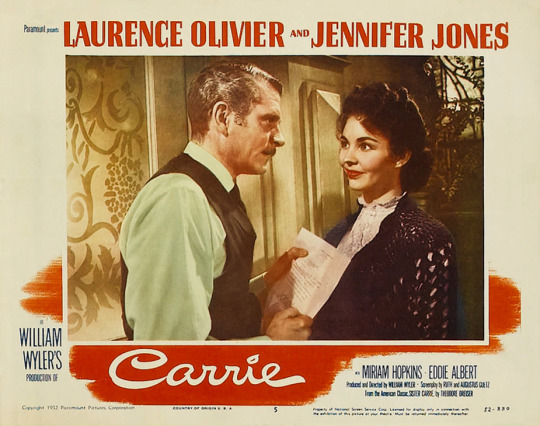
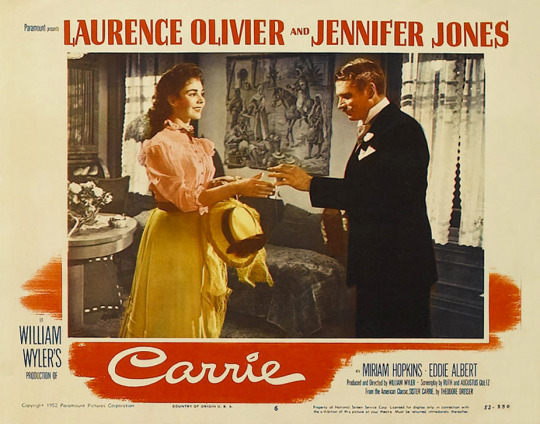



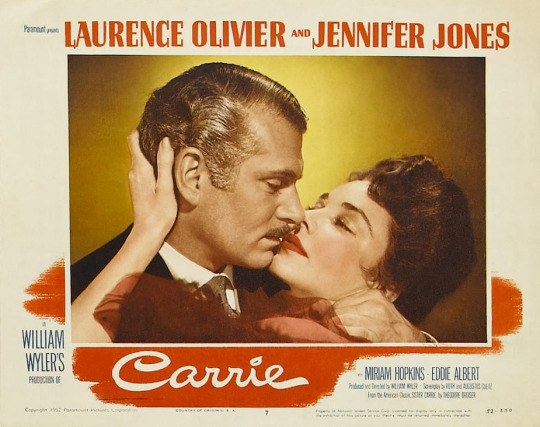
original lobby card set for Carrie (1952), based on Theodore Dreiser's acclaimed novel Sister Carrie. Paramount executives changed the name to Carrie so people wouldn't think it was about a nun.
The film adaptation was credited to Ruth and Augustus Goetz. Their entry among my best 1,001 movies is The Heiress.
2 notes
·
View notes
Text
Here are some verses to show how much Yah wants us to be in a relationship with Him.
"Seek first His Kingdom and His righteousness and all these things will be given to you as well." --Matthew 6:33
"You will seek Me and find Me when you seek Me with all your heart." --Jeremiah 29:13
"Come near to G-d and He will come near to you." --James 4:8
"Love the L-rd your G-d with all of your heart, and with all of your soul and with all of your strength." --Deuteronomy 6:5
Here are some worship songs to help you know how much He loves you and wants to be in a relationship with you.
"Reckless Love" by Cory Asbury
"Your Love Awakens Me" by Phil Wickham
"How He Loves Us" by Shane & Shane
"Drenched in Love" by Bethel Music
"Pieces" by Steffany Gretzinger
"Nothing Else + The Heart of Worship" by Kari Jobe and Cody Carnes
"My Beloved" by Kari Jobe
"The Garden" by Kari Jobe
"Nothing New" by Brandon Lake
"Ruth's Song" by Misha and Marty Goetz
"Just Want You" by The Belonging Co.
"Kids" by Brandon Lake
"Lost in Your Love" by Brandon Lake & Sarah Reeves
"Close to You" by Joshua Aaron
**These are just some of the songs I found. There are many others, but these are just some to listen to in the meantime.
#holy spirit#word of god#faith in god#faith in jesus#christian faith#worship#praise#Yah's Heartcry!#Relationship with God#Intimacy with God#Spending time in His presence#God's love
1 note
·
View note
Text
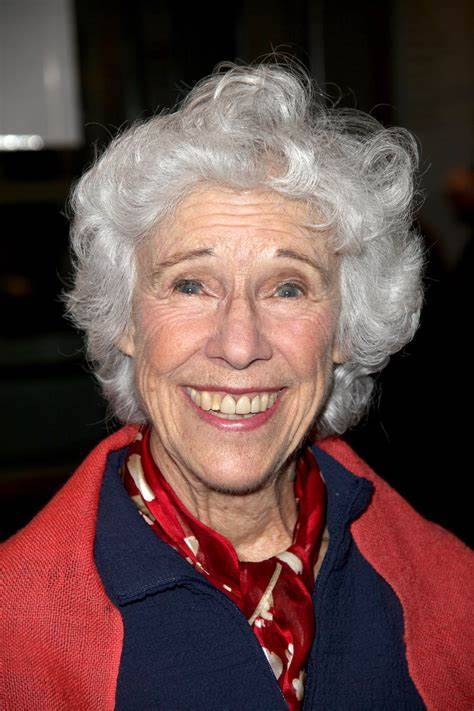
FRANCES STERNHAGEN (1930-Died November 27th 2023,at 93). American actress. Sternhagen was known as a character actress who appeared on- and off-Broadway, in movies, and on television for over six decades. She received numerous accolades including two Tony Awards, a Drama Desk Award, a Saturn Award, as well as nominations for three Primetime Emmy Awards.
Sternhagen gained acclaim for her extensive career on the Broadway stage. She made her debut in The Skin of Our Teeth (1955). She went on to receive two Tony Awards for Best Featured Actress in a Play for her performances as various characters in Neil Simon's comedic play The Good Doctor (1973) and as Lavinia Penniman in Ruth and Augustus Goetz's dramatic play The Heiress (1995). Her other Tony-nominated roles were for The Sign in Sidney Brustein's Window (1972), Equus (1975), Angel (1978), On Golden Pond (1979), and Morning's at Seven (2002).
She gained prominence and Primetime Emmy Award nominations for her recurring roles as Esther Clavin in the NBC sitcom Cheers (1986–1993) and Bunny MacDougal in the HBO series Sex and the City (2000–2002). She also had a recurring role on the TNT series The Closer (2006–2012). Sternhagen acted in numerous films including The Hospital (1971), Starting Over (1979), Misery (1990), and Julie & Julia (2009).Frances Sternhagen - Wikipedia
#Frances Sternhagen#American Actresses#Actresses#Cheers#Sex and the City#Bunny MacDougal#Esther Clavin#Notable Deaths in November 2023#Notable Deaths in 2023
1 note
·
View note
Text
Conversation with Tina Howe
It's been a difficult week losing our dear Tina Howe. She served on Council at the Dramatists Guild of America for over 30 years. Here is a piece created from an interview she gave to Ruth Goetz, originally published in the Winter 1988 edition of The Dramatists Guild Quarterly (the predecessor to #TheDramatist).
0 notes
Text
C.H.U.D. (1984) – Episode 229 – Decades Of Horror 1980s
“Are you kidding? Your guy’s got a camera. Mine’s got a flamethrower.” A flamethrower’s good. Join your faithful Grue-Crew – Chad Hunt, Bill Mulligan, Crystal Cleveland, and Jeff Mohr – as they hit the radioactive underground in C.H.U.D. (1987). Be sure to bring your flamethrower!
Decades of Horror 1980s
Episode 228 – C.H.U.D. (1987)
Join the Crew on the Gruesome Magazine YouTube channel!
Subscribe today! And click the alert to get notified of new content!
https://youtube.com/gruesomemagazine
A bizarre series of sudden disappearances on the streets of New York City seems to point toward something unsavory living in the sewers.
Director: Douglas Cheek
Writers: Parnell Hall (screenplay); Shepard Abbott (story); Christopher Curry (uncredited), Daniel Stern (uncredited)
Makeup Department
John Caglione Jr. (special makeup creator: CHUD)
Kevin Haney (makeup animatronics)
Selected Cast:
John Heard as George Cooper
Daniel Stern as A.J. ‘The Reverend’ Shepherd
Christopher Curry as Captain Bosch
Kim Greist as Lauren Daniels
Laure Mattos as Flora Bosch
Brenda Currin as Francine the Landlady
Justin Hall as Justin
Michael O’Hare as Fuller
Cordis Heard as Officer Sanderson
Vic Polizos as Hays
Eddie Jones as Chief O’Brien
Sam McMurray as Officer Crespi
Frank Adu as Interrogation Cop
Ruth Maleczech as Mrs. Monroe
J.C. Quinn as Murphy
Patricia Richardson as Ad Woman
Ray Baker as Ad Man (as Raymond Baker)
Beverly Bentley as Doris
Graham Beckel as Val
Gene O’Neill as Jackson
Rocco Siclari as Hugo
Bill Raymond as Victor (as William Joseph Raymond)
Peter Michael Goetz as Gramps
Shana Lee Farrell as Cindy
John Ramsey as Commissioner
George Martin as Wilson
John Bedford Lloyd as Shadow Man (as John Bedford-Lloyd)
Henry Yuk as Coroner
Robert Toupin as Benson
Frankie Faison as Sgt. Parker (as Frankie R. Faison)
Ivar Brogger as Gooney NRC Man
Parnell Hall as Judson
John Goodman as Cop in Diner
Jay Thomas as Cop in Diner
Hallie Foote as Waitress
Jon Polito as Newscaster
Mark Mikulski as Cop at Wrecked Diner
Lou Leccese as CHUD
Sanford Clark as CHUD
James Dudley as CHUD
Carey Eidel as CHUD
Cannibalistic humanoid underground dwellers. Or in Spain, Caníbales Humanoides Ululantes Demoníacos. Either way, it’s C.H.U.D., some serious campy 80s gold! The Grue-Crew revisits this fun monster movie from 1984 for this episode of Decades of Horror 1980s. John Heard, Daniel Stern, and Christopher Curry lead the cast in Douglas Cheek’s feature film debut. But the movie is about the creatures and maybe a small cameo from John Goodman… kidding. Check out what the Grue-Crew thinks of this sci-fi/horror classic.
At the time of this writing, C.H.U.D. is available to stream from these free-with-ads sites: Roku, Tubi, PlutoTV, Hoopla, Plex; and from these subscription sites: Amazon Prime, Arrow; and of course, there are PPV options. The film is also available as a Blu-ray disc from Arrow Video.
Every two weeks, Gruesome Magazine’s Decades of Horror 1980s podcast will cover another horror film from the 1980s. The next episode’s film, chosen by Bill, will be Wicked City (1987). Why does Bill keep warning the 80s Grue-Crew about the content of this film? Hmmm . . .
Please let them know how they’re doing! They want to hear from you – the coolest, grooviest fans – so leave them a message or comment on the gruesome Magazine Youtube channel, on the website, or email the Decades of Horror 1980s podcast hosts at [email protected].
Check out this episode!
0 notes
Text
The signs as “The Heiress” theatrical costumes
Aries

Taurus

Gemini

Cancer

Leo
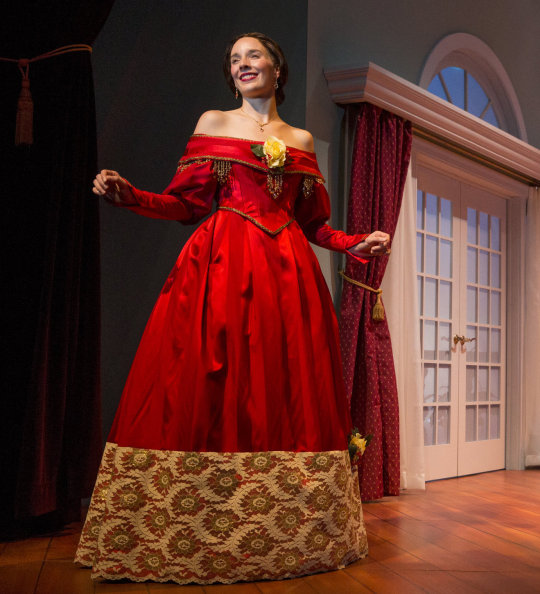
Virgo

Libra

Scorpio

Sagittarius

Capricorn

Aquarius

Pisces

#the signs as#zodiac aesthetic#astrology#horoscope#the heiress#augustus goetz#ruth goetz#1800s fashion#jessica chastain#costume design#period costume
14 notes
·
View notes
Photo
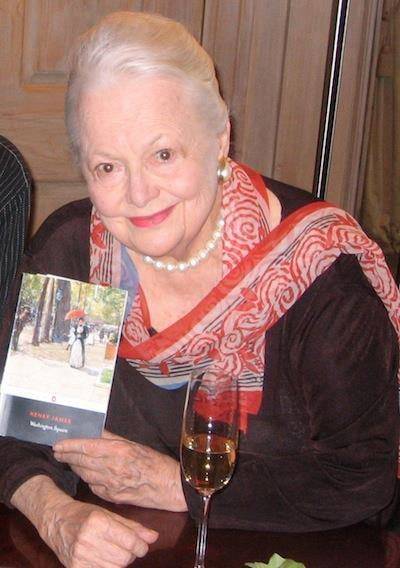
Olivia de Havilland photographed in 2011 holding a copy of the 1884 novel "Washington Square" by Henry James. The book was used as the basis for the 1947 play "The Heiress” by Ruth and Augustus Goetz which in its turn was adapted for the 1949 film of the same name starring Olivia, Montgomery Clift and Ralph Richardson.
Olivia won Best Actress at the Academy Awards for her performance. She also won Best Actress in a Motion Picture at the Golden Globe Awards.
7 notes
·
View notes
Text
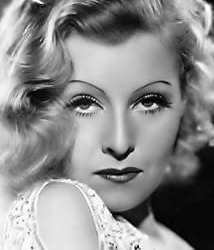
Lilian Harvey (born Helene Lilian Muriel Pape, 19 January 1906 – 27 July 1968) was an Anglo-German actress and singer, long based in Germany, where she is best known for her role as Christel Weinzinger in Erik Charell's 1931 film Der Kongreß tanzt.
Harvey was born in 1906, in Crouch End, North London. Her mother, Ethel Marion (Laughton), was English, and her father, Walter Bruno Pape, was a German businessman. At the beginning of World War I the family found itself in Magdeburg, and as they were unwilling and unable to return to England, Harvey was sent to live with an aunt at Solothurn in Switzerland. After the war, the Papes lived in Berlin, where Lilian took her high-school diploma (Abitur) in 1923. She began her career by attending the dance and voice school of the Berlin State Opera and assumed her grandmother's maiden name (Harvey) as her professional surname.
After an engagement as a revue dancer in Vienna in 1924, Harvey received her first movie role as the young Jewish girl "Ruth" in the Austrian film The Curse directed by Robert Land. Subsequently, she starred in many silent films. In 1925, she was cast in her first leading role in the film Passion by Richard Eichberg, side by side with Otto Gebühr.
Because of her training as a singer, Harvey was able to pursue a successful acting career during the initial talkie era of the early 1930s. Her first movie with Willy Fritsch was the operetta film Chaste Susanne in 1926. Harvey and Fritsch became the "dream couple" of German movies in the early 1930s with the romantic love story Waltz of Love; she was called the "sweetest girl in the world" by the press, after a song featured in the film. She and Fritsch starred in a total of 11 movies together, among them the criminal comedy Hokuspokus (1930) after a play by Curt Goetz, directed by Gustav Ucicky, which became a box office success. An English version (The Temporary Widow) was filmed simultaneously, starring Lilian Harvey and Laurence Olivier, who thereby made his film debut. She also appeared in the musical film The Three from the Filling Station of the same year, which also became a major success and gave the young actor Heinz Rühmann his break. During this period she became the muse of the composer Charles Koechlin who, in his sixties, wrote numerous pieces in her honour; initially flattered, she soon became disturbed by his apparent obsession with her.
In 1931, Harvey played the leading part in the film Der Kongreß tanzt (The Congress Dances); her song Das gibt's nur einmal written by Werner R. Heymann became a most popular melody. Her subsequent movies were filmed in English and French versions, so Harvey became known outside of Germany. She was invited to Hollywood and made four movies for the Fox Film Corporation, but these were not as successful as her German films. She eventually abandoned George White's Scandals, leading executives to cast Alice Faye in the part, and Faye became an overnight sensation. After leaving Hollywood she appeared in a British film Invitation to the Waltz. In 1935, Lilian Harvey returned to Germany.
After the war, Harvey moved to Paris. In the following years, she travelled as a singer through Scandinavia and Egypt. In 1949, she returned to West Germany giving several concerts. Harvey retired to the resort town of Antibes on the French Riviera, where she operated a souvenir shop and raised edible snails.
From 1953 to 1957, Harvey was married to Danish theatre agent Hartvig Valeur-Larsen.
As she was still in touch with her Jewish colleagues, Harvey was placed under close observation by the Gestapo.[citation needed] Nevertheless she pushed the career of her protégé, director Paul Martin, performing in his screwball comedy Lucky Kids (1936) and further successful movies for the UFA until 1939, such as Seven Slaps, the biographical film Fanny Elssler (1937) together with Willy Birgel and Capriccio; as well as Frau am Steuer in 1939.
In June 1937 Harvey had helped the choreographer Jens Keith, prosecuted under the homosexual acts Paragraph 175, by posting a bail for him. Released from custody, Keith escaped to Paris; this led to a stern interrogation by the Nazi authorities. He subsequently returned to Berlin and UfA. In spring 1939, Harvey left Germany and her real-estate fortune, which was confiscated[citation needed]; she was to be deprived of her German citizenship in 1943 because she had performed for French troops.
Harvey went to live at her residence in Juan-les-Pins in Vichy France. In France she made two movies in 1940 – Serenade and Miquette (her last), both directed by Jean Boyer. After the occupation of southern France by German forces in November 1942, Harvey emigrated to the USA spending most of the time in Los Angeles working as a volunteer nurse, but also went on tour performing in Noël Coward's Blithe Spirit.
From 1953 to 1957, Harvey was married to Danish theatre agent Hartvig Valeur-Larsen.
Lilian Harvey died of liver failure on 27 July 1968 in Juan-les-Pins, aged 62. She was buried at the Robiac Cemetery in Antibes.
#lilian harvey#classic hollywood#classic movie stars#golden age of hollywood#old hollywood#silent era#silent movie stars
7 notes
·
View notes
Text
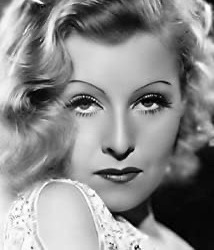
Lilian Harvey (born Helene Lilian Muriel Pape, 19 January 1906 – 27 July 1968) was an Anglo-German actress and singer, long based in Germany, where she is best known for her role as Christel Weinzinger in Erik Charell's 1931 film Der Kongreß tanzt.
Harvey was born in 1906, in Crouch End, North London. Her mother, Ethel Marion (Laughton), was English, and her father, Walter Bruno Pape, was a German businessman. At the beginning of World War I the family found itself in Magdeburg, and as they were unwilling and unable to return to England, Harvey was sent to live with an aunt at Solothurn in Switzerland. After the war, the Papes lived in Berlin, where Lilian took her high-school diploma (Abitur) in 1923. She began her career by attending the dance and voice school of the Berlin State Opera and assumed her grandmother's maiden name (Harvey) as her professional surname.
After an engagement as a revue dancer in Vienna in 1924, Harvey received her first movie role as the young Jewish girl "Ruth" in the Austrian film The Curse directed by Robert Land. Subsequently, she starred in many silent films. In 1925, she was cast in her first leading role in the film Passion by Richard Eichberg, side by side with Otto Gebühr.
Because of her training as a singer, Harvey was able to pursue a successful acting career during the initial talkie era of the early 1930s. Her first movie with Willy Fritsch was the operetta film Chaste Susanne in 1926. Harvey and Fritsch became the "dream couple" of German movies in the early 1930s with the romantic love story Waltz of Love; she was called the "sweetest girl in the world" by the press, after a song featured in the film. She and Fritsch starred in a total of 11 movies together, among them the criminal comedy Hokuspokus (1930) after a play by Curt Goetz, directed by Gustav Ucicky, which became a box office success. An English version (The Temporary Widow) was filmed simultaneously, starring Lilian Harvey and Laurence Olivier, who thereby made his film debut. She also appeared in the musical film The Three from the Filling Station of the same year, which also became a major success and gave the young actor Heinz Rühmann his break. During this period she became the muse of the composer Charles Koechlin who, in his sixties, wrote numerous pieces in her honour; initially flattered, she soon became disturbed by his apparent obsession with her.
In 1931, Harvey played the leading part in the film Der Kongreß tanzt (The Congress Dances); her song Das gibt's nur einmal written by Werner R. Heymann became a most popular melody. Her subsequent movies were filmed in English and French versions, so Harvey became known outside of Germany. She was invited to Hollywood and made four movies for the Fox Film Corporation, but these were not as successful as her German films. She eventually abandoned George White's Scandals, leading executives to cast Alice Faye in the part, and Faye became an overnight sensation. After leaving Hollywood she appeared in a British film Invitation to the Waltz. In 1935, Lilian Harvey returned to Germany.
After the war, Harvey moved to Paris. In the following years, she travelled as a singer through Scandinavia and Egypt. In 1949, she returned to West Germany giving several concerts. Harvey retired to the resort town of Antibes on the French Riviera, where she operated a souvenir shop and raised edible snails.
From 1953 to 1957, Harvey was married to Danish theatre agent Hartvig Valeur-Larsen.
As she was still in touch with her Jewish colleagues, Harvey was placed under close observation by the Gestapo.[citation needed] Nevertheless she pushed the career of her protégé, director Paul Martin, performing in his screwball comedy Lucky Kids (1936) and further successful movies for the UFA until 1939, such as Seven Slaps, the biographical film Fanny Elssler (1937) together with Willy Birgel and Capriccio; as well as Frau am Steuer in 1939.
In June 1937 Harvey had helped the choreographer Jens Keith, prosecuted under the homosexual acts Paragraph 175, by posting a bail for him. Released from custody, Keith escaped to Paris; this led to a stern interrogation by the Nazi authorities. He subsequently returned to Berlin and UfA. In spring 1939, Harvey left Germany and her real-estate fortune, which was confiscated[citation needed]; she was to be deprived of her German citizenship in 1943 because she had performed for French troops.
Harvey went to live at her residence in Juan-les-Pins in Vichy France. In France she made two movies in 1940 – Serenade and Miquette (her last), both directed by Jean Boyer. After the occupation of southern France by German forces in November 1942, Harvey emigrated to the USA spending most of the time in Los Angeles working as a volunteer nurse, but also went on tour performing in Noël Coward's Blithe Spirit.
From 1953 to 1957, Harvey was married to Danish theatre agent Hartvig Valeur-Larsen.
Lilian Harvey died of liver failure on 27 July 1968 in Juan-les-Pins, aged 62. She was buried at the Robiac Cemetery in Antibes.
#lilian harvey#silent era#silent hollywood#silent movie stars#golden age of hollywood#classic movie stars#classic hollywood#old hollywood
6 notes
·
View notes
Text
Albany Civic Theater Seeks Volunteers
Albany Civic Theater Seeks Volunteers
You are invited to join the Albany Civic Theater volunteer community.
This season opens with The Heiress by Ruth and Augustus Goetz. Runs Friday 9/6 through Sunday 9/22.
We are looking for volunteers to help us at the theater, as ushers and for hospitality
Please contact [email protected] for more information and to get involved.
Matthew Coviello, Vice President of Member Service,…
View On WordPress
#ACT#Albany Civic Theater#Albany NY#Augustus Goetz#Matthew Coviello#Ruth and Augustus Goetz#Ruth Goetz#The Heiress
0 notes
Photo

Filmoteca: Semana de Georg W. Pabst FILMOTECA dedica su programación de esta semana a uno de los realizadores esenciales del cine alemán: GEORG. W. PABST. Georg Wilhelm Pabst (1885-1967) nació en el hoy extinto imperio Austrohúngaro. Llevó a cabo su obra en el cine alemán y comenzó su carrera en los años 20 dentro del marco del expresionismo para luego derivar en otras direcciones. Interesado en el realismo y la profundidad psicológica de sus personajes, se movía con comodidad en un ambiente de erotismo decadente, gustoso de generar algún que otro escándalo. Filmó a las mujeres como nadie, trabajando con divas de la talla de Brigitte Helm y, sobre todo, Louise Brooks, quien ya era una estrella en los EE.UU. pero, a su llegada a Alemania, Pabst la volvió inmortal. Programación: Lunes 9 de septiembre: “MISTERIOS DE UN ALMA” (1926) de GEORG W. PABST, con Werner Krauss, Ruth Weyher, Ilka Grüning, Jack Trevor, Hertha von Walther. Martes 10 de septiembre: “EL AMOR DE JEANNE NEY” (1927) de GEORG W. PABST, con Brigitte Helm, Édith Jéhanne, Uno Henning, Fritz Rasp. Miércoles 11 de septiembre: “CRISIS” (1928) de GEORG W. PABST, con Brigitte Helm, Gustav Diessl, Hertha von Walther, Jack Trevor, Fritz Odemar. Jueves 12 de septiembre: “LULU O LA CAJA DE PANDORA” (1928) de GEORG W. PABST, con Louise Brooks, Fritz Kortner, Francis Lederer, Carl Goetz, Krafft-Raschig, Alice Roberts, Gustav Diessl. Vienes 13 de septiembre: “DIARIO DE UNA PERDIDA” (1929) de GEORG W. PABST, con Louise Brooks, André Roanne, Josef Rovenský, Fritz Rasp, Vera Pawlowa. https://ift.tt/2A0Dm2P
1 note
·
View note
Audio
Frances Yip is a famous diva in Hong Kong. In the early 70s her song travel around the world, with her contract with EMI, she recorded a series of albums with different languages and released all around the world.
This is her first record for EMI, with arrangement from Nick Ingman’s Orchestra and recorded in London’s Chappell Studio, with the same month, she had released her first album in Chinese and Japanese
Stage Struck is a 1958 American drama film directed by Sidney Lumet and starring Henry Fonda, Susan Strasberg and Christopher Plummer in his film debut. The screenplay, by Augustus and Ruth Goetz, is based on the stage play Morning Glory by Zoë Akins, which also served as the basis for the 1933 film Morning Glory which starred Katharine Hepburn, Douglas Fairbanks, Jr. and Adolphe Menjou in corresponding roles.
6 notes
·
View notes